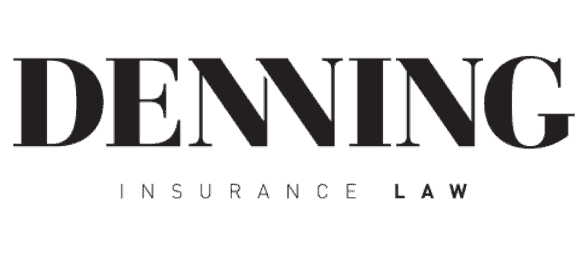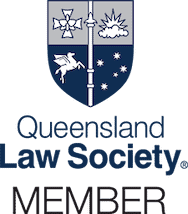If you have suffered a personal injury in an accident, you might need to find a no win no pay lawyer or, no win no fee lawyer in Brisbane. But what does ‘no win no fee‘ actually mean?
What does no win no fee actually mean?
Some lawyers act on behalf of their clients on a no win no fee, no win no pay, speculative or conditional basis. All these terms have similar meanings to lawyers. Under these sort of costs agreements, part or all of your costs will not be payable unless you achieve a ‘successful outcome’.
What is a successful outcome in a no win no fee costs agreement?
The law firm’s costs agreement should clearly explain what a ‘win’ or ‘successful outcome’ means. A client should have an understanding of the circumstances in which their lawyer will charge for their fees.
A ‘successful outcome’ might mean more than the client achieving a judgment or settlement in their favour.
For example, a costs agreement could also define ‘successful outcome’ to mean:
- rejecting an offer for the payment of a sum which the lawyer considers reasonable;
- where the client terminates the costs agreement and transfers the matter to another firm;
How do no win no fee lawyers work?
Under a no win no fee agreement, a law firm agrees to provide legal services and not charge for all or part of those services unless a ‘successful outcome’ is achieved. The client remains in control of their case and should expect the same standard of service from the firm as a client who pays their fees as they go.
What do no win no fee solicitors charge?
Your costs agreement will contain an estimate of the likely costs you will incur in your no win no fee case.
There are different methods by which solicitors charge for professional services rendered in no win no fee agreements. These include itemised scale fees, statutory scales, task-based fees, fixed fees and conditional fee arrangements which may include an uplift fee. These methods of charging may result in different fees payable.
Charging on the basis of time taken to do a task may result in a charge which is different from charging on the basis of a set fee to do that task. To calculate time charged, many lawyers operate on units of six minutes. The cost of each unit is 10% of the hourly rate of the person doing the work. If the time taken is less than six minutes, one unit (six minutes) is charged. If the time taken is not an exact multiple of six minutes, the lawyer will either rounded up or down to the next multiple of six minutes.
What percentage do no win no fee lawyers take in Queensland?
In Queensland, a lawyer cannot charge a client a fee which is dependent upon the outcome of their matter. This means that a firm cannot simply charge a client a percentage of their settlement or judgment, for their work.
Law firms are only entitled to charge a reasonable amount for their fees. A percentage of judgment or settlement is a “contingency fee” and is prohibited under the Legal Profession Act 2007 (Qld).
What are the hidden costs in no win no fee agreements?
There should be no hidden costs. There are certain charges in many no win no fee costs agreements which people are unaware of and these include:
- care and consideration
- barristers fees
- expert report fees
- Court filing fees
- an uplift fee
The costs agreement should explain how the client will be charged for professional fees and disbursements that the client may be required to pay.
What is an "uplift fee"?
An uplift fee is the fee that a law firm may charge for the risk that they take in accepting instructions on a no win no fee basis. By agreeing to take on a case on a speculative basis, there is a risk that the law firm will not be paid for the work that is performed. An uplift fee of a fixed percentage can be applied to account for that risk. Some firms may not charge an uplift fee but instead, charge a higher hourly rate for their services.
Where an uplift fee applies, the costs agreement must clearly state how the uplift is calculated. If it doesn’t, the costs agreement may be considered void: Carter Capner Law v Clift & Ors [2020] QCA 125. The usually uplift percentage that is applied is between 0% and 20%, depending on the case.
How much do no win no fee lawyers take in Qld?
Under section 347 of the Legal Profession Act 2007 (Qld) caps the amount of fees which a law firm can charge a client in a no win no fee agreement. The law firm cannot charge more than 50% of the net settlement or judgment amount, including GST. This is known as the ’50/50 rule’.
There are different factors which can affect the cost of legal services in a no win no fee matter. Some of these include:
- how complicated the accident or the injuries are;
- how long the claim goes for and the stage at which it is finalised;
- the attitude of your opponent;
- time necessarily taken to get information from third parties or the client.
The law firm is required to provide the client with an estimate of the total legal costs (or a range of the total legal costs) for a matter, in the costs agreement. If there is a change in the estimate, the lawyer is required to provide an update about that change.
What is the 50/50 rule in personal injury law in Qld?
The 50/50 rule restricts the fees that a Qld law firm can charge a client in a personal injury claim.
Under section 347 of the Legal Profession Act 2007 (Qld) a law firm cannot charge a client more 50% of their net settlement or judgment monies (that is, the amount that is left after statutory refunds, disbursements and medical report fee costs are deducted).
That is, the law firm cannot receive more in professional fees than what the client receives from any settlement or judgment.
Does no win no fee mean the legal services are free?
No win no fee legal services are not free. The term ‘no win no fee’ means that the lawyer will not charge a fee unless you achieve a ‘successful outcome’ in your matter.
The solicitor will charge for their fees if you achieve a ‘successful outcome’. Under some no win no fee agreements, clients are required to pay for disbursements, irrespective of the outcome in the matter.
Can I recover legal costs from the other party?
In many Queensland personal injury claims, an injured person can recover a contribution towards their costs from the other party.
The amount of costs that a client may recover depends upon a number of factors including the:
- type of claim for personal injuries. That is, whether the claim is a public liability, workers’ compensation or road accident claim;
- stage at which the claim is finalised. That is, pre-court, litigated or final judgment;
- amount of the settlement or judgment;
- the seriousness of their injuries;
- jurisdiction or Court in which the claim is commenced.
What happens if you lose a no win no fee case?
One of the dangers that is of concern to clients is: “what if I lose my no win no fee case?”
The consequence of losing your no win no fee case will depend upon the circumstances in which you ‘lose’ and the costs agreement between you and your solicitor.
In claims for personal injuries in Queensland, there are generally no cost consequences for commencing a claim and progressing it through the pre-court stage. It is usually only when a claim becomes litigated that there are risks of costs being awarded against an injured person. However, it is important to note that less than 1% of personal injury claims proceed to trial in Queensland.
If your case is one of the rare few that proceeds to trial and costs are awarded against you, you may have to pay a portion of the other parties fees. If you have a case that is worth pursuing, you should not be deterred from pursuing a claim because of the remote possibility that costs might be awarded against you. There are usually several opportunities to settle a claim between the time that it is started and when a trial begins.
How do I compare lawyers to one another?
Finding a No Win No Fee Lawyer in Brisbane requires time and research. Choosing the right lawyer for your matter is essential to success. But searching Google for ‘top no win no fee lawyer’ is probably not the best way to go about it. When choosing a lawyer there are many more things to consider apart from the fees that the lawyer will charge.
Some of the reasons you might want to choose a particular lawyer might be:
- the lawyer’s level of experience in handling similar types of claims;
- how the matter will be managed. Will you be dealing directly with a senior lawyer, lawyer, paralegal or other administrative staff?
- whether the lawyer has specialist accreditation in their State or Territory;
- the lawyer’s initial assessment of your claim;
- the lawyer's understanding of the key issues in the case;
- the rapport that you establish with the lawyer.
What are the pitfalls of no win no fee?
There are some disadvantages to no win no fee agreements. For example, law firms are entitled charge a higher amount for their services due to the nature of the agreement. They may do this by charging a higher standard hourly rate or charging an uplift fee.
If a firm does not provide disbursement funding or pay the client’s disbursements as a claim progresses, they will be required to fund their own expenses related to the case. However, most law firms offer disbursement funding through third party providers.
There is also a perception among the public that no win no fee lawyers might provide a lower level of service to those lawyers who charge for their time as a matter progresses. Clients should expect the same standard of service and competence of their lawyer as those clients who pay as they go.
Finding no win no fee lawyer reviews
Of course, online reviews can be a fast and familiar way to compare personal injury lawyers in an ocean of information on the web.
Reviews of no win no fee lawyers can be found on:
However, a lawyer could have many 5 star reviews online yet you may not feel as though you gel with that person. Make your own decision about whether a particular law firm or lawyer is right for you.
What is an Accredited Specialist?
Specialist accreditation is an Australia wide, peer evaluated qualification awarded to solicitors. To achieve specialist accreditation, solicitors must undertake additional study and assessment.
There are Accredited Specialists across a number of areas of law including: personal injury law; family law; and, employment law.
In Queensland, there are approximately 120 Accredited Personal Injury Law Specialists. Our Principal Kate Denning is an accredited specialist.
Are no win no fee lawyers worth it?
The main advantage of engaging a solicitor on a no win no fee basis is that clients can pursue a claim, without having to pay legal costs as their matter progresses.
In most instances, law firms will not accept instructions to act in a matter unless they have a reasonable expectation of their fees being paid. Also, statutory caps in Queensland prevent law firms from receiving more than what an injured person can receive from a settlement.
Many clients would struggle to meet the ongoing legal costs associated with pursuing a claim and so, no win no fee lawyers provide many people with access to justice.
Are no win no fee solicitors a con?
No. Queensland law firms must comply with strict rules concerning no win no fee costs agreements. No win no fee solicitors provide many people with access to justice, who otherwise may not be able to afford to pay their legal fees as they go.
Of course, before entering into a no win no fee costs agreement with a law firm you should consider the reputation of the lawyer that you are thinking about retaining for your case. A relationship of trust with your solicitor is important to the success of your matter. You should feel comfortable with the person who is going to represent you over a long period of time.
How much does an initial consultation cost?
No Win No Fee Lawyers generally offer new enquirers a free initial consultation. If they are prepared to accept instructions in a case, provide you with a costs agreement at or shortly after your initial appointment.
Do I have to sign a no win no fee costs agreement straight away?
No and you should not sign a costs agreement at your first appointment. You have the right to seek independent legal advice in relation to the costs agreement at your own expense. You should be advised of your right to seek independent legal advice about the agreement.
There is also a statutory cooling off period for all Queensland costs agreements, allowing you to terminate the costs agreement within not less than five (5) clear business days of entering into the costs agreement.
How do I prepare for an appointment with a lawyer?
Strict timeframes apply in claims for personal injuries, so it is important to consult a lawyer about your rights and obligations as soon as possible after an accident – even if you do not have all of the information or documents just yet.
To prepare for your appointment with no win no fee lawyers, some tips are to:
- know the date of your accident or if it occurred over a period of time, have a good idea of the chronology of incidents that you think might give rise to a claim;
- have medical certificates, medical records and medical reports available for the lawyer to review at or prior to your appointment;
- have accident reports or incident reports available for the lawyer to review at or prior to your appointment;
- be honest and open with the lawyer about your past medical and claims history.
How long does a no win no fee case take?
The case duration of a no win no fee matter varies and depends upon a number of factors including:
- the type of personal injury claim;
- the nature and extent of injuries;
- the attitude of the opponent.
At your first consultation, the solicitor should be able to provide you with their initial views about how long a case like yours might take to finalise.
Does Denning Insurance Law act in no win no fee cases?
Yes. Denning Insurance Law acts on behalf of clients on a no win no fee basis in workers’ compensation, road accidents and public liability matters.
Book a FREE initial telephone consultation with Accredited Personal Injury Law Specialist and Principal, Kate Denning to consider your legal options with respect to a personal injury.
You can expect that Kate will discuss with you:
- the circumstances of the accident or event
- the claim process
- critical time limits
- the types of damages that can be claimed
To read about some of the successful personal injury and insurance claim outcomes we have achieved for clients, click here.





